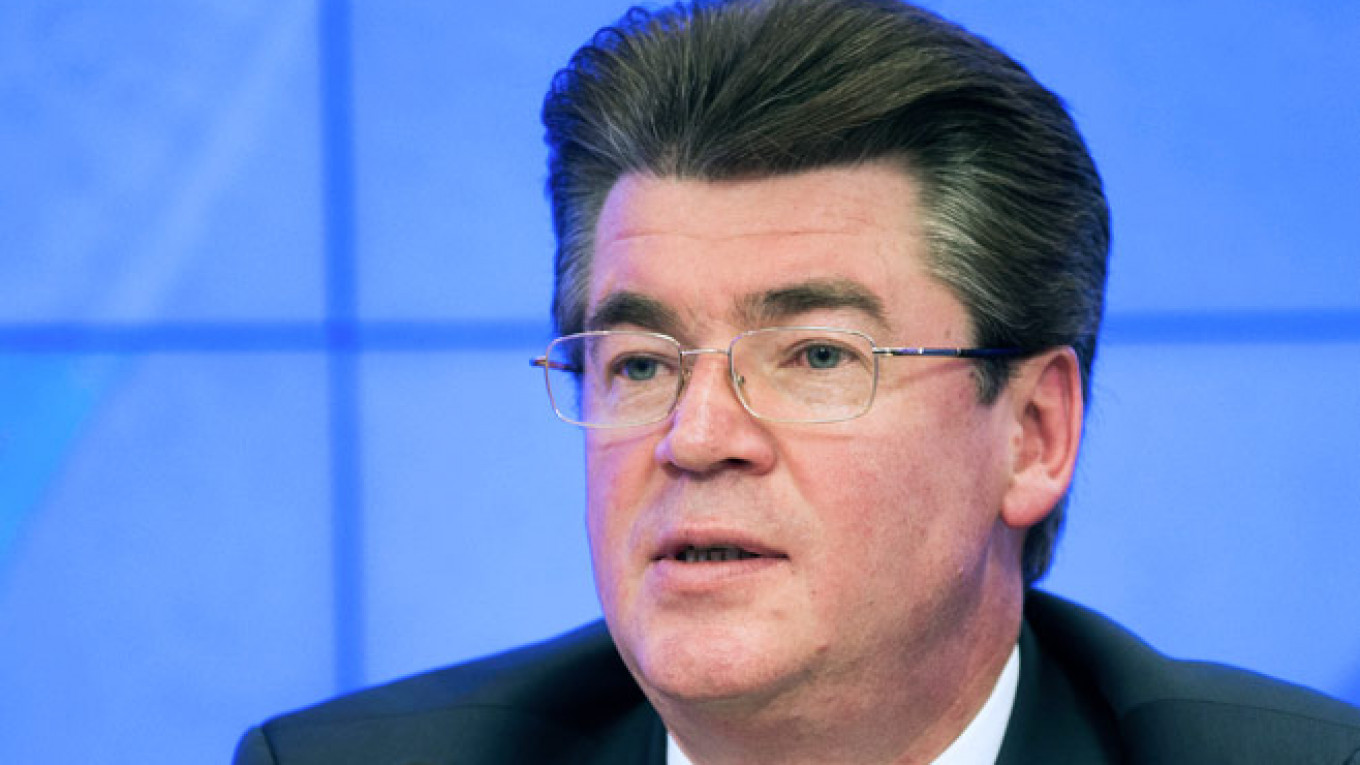A day after the Dutch Safety Board (DSB) revealed its final conclusions on the downing of Malaysia Airlines flight MH17 last July, the deputy head of Russia's federal aviation body provided new impetus to a concerted effort by Russian media and officials to undermine the Dutch findings.
"We get the impression that instead of a thorough analysis of objective facts, the committee [of the Dutch Safety Board] has supplied evidence to back up a previously chosen version," deputy head of the Federal Air Transportation Agency Oleg Storchevoi was cited as saying at a press conference Wednesday by news agency Interfax.
Storchevoi also said Russia would conduct its own investigation into the tragedy, citing Article 5.13 of the Convention on Civil International Aviation's Annex 13 which gives states the right to renew investigations into an air disaster "if new and significant evidence becomes available," he said in a separate Interfax report.
"The number of inconsistencies in this report is off the charts," Storchevoi said.
The DSB on Tuesday presented its final findings on what caused the crash of MH17 over eastern Ukraine last year, killing all 298 people on board.
But many of its conclusions fell on deaf ears in Russia.
A rival press conference by Russian arms manufacturer Almaz-Antey on Tuesday morning — which, like the Dutch report, blamed a Buk missile manufactured by Almaz-Antey but pointed toward an older model — provided a prism through which all subsequent news, including the DSB report, was covered.
Russia's Channel One television channel's evening news opened with a short introduction on the facts of last year's downing, and then immediately switched to a roughly five-minute segment on the experiments conducted by Almaz-Antey.
A summary of the DSB's technical report was then quickly followed by a citation of Russia's Deputy Foreign Minister Sergei Ryabkov in which he called the Dutch investigation "biased."
The pro-Kremlin NTV television channel on Tuesday published articles headlined "Almaz-Antey proved Russia was not involved in the downing of MH17 in Ukraine" and another one titled "The Kremlin sees lack of objectivity in Dutch report over MH17."
Russian officials started feeding state media with criticism of the DSB's findings before the report was even published.
On the eve of the DSB's report, Kremlin spokesman Dmitry Peskov said Moscow had "repeatedly expressed its disappointment over the lack of cooperation and involvement of Russian experts in the investigation," the TASS news agency reported.
"A series of facts, which have been put forward by the Russian side, have been ignored for unknown reasons," he said.
Ryabkov, the deputy foreign minister, said Tuesday that the report was "an attempt to make biased conclusions, effectively fulfilling political orders — obviously," state-run news agency RIA Novosti reported.
The statements made by Storchevoi on Wednesday provided new impetus to that narrative in the media.
"Rosaviatsia [the Federal Air Transportation Agency] suspects the Netherlands of falsifying wreckage pieces," a headline by pro-Kremlin tabloid LifeNews read, citing Storchevoi as saying the shrapnel referred to in the Dutch report was not identical to that found at the wreckage site.
Ryabkov's allusions to foreign interests — presumably those of the U.S. — influencing the outcome of the DSB report were also echoed on Wednesday.
The Gazeta.ru news website headlined: "Rosaviatsia does not exclude collusion between the members of the Boeing committee," citing Storchevoi's suspicions regarding the level of agreement between other countries and the supposed neglecting of Russia.
One of the DSB's findings, however, was quietly embraced on Tuesday and continued to make headlines on Wednesday.
"Rosaviatsia considers Kiev responsible for failing to close its airspace before the MH17 accident," the RIA Novosti state-run news agency headlined Wednesday.
The Dutch Safety Board in its report on Tuesday concluded Ukrainian authorities should have closed the country's airspace to commercial aviation above the conflict-ridden area in eastern Ukraine.
Contact the author at e.hartog@imedia.ru
A Message from The Moscow Times:
Dear readers,
We are facing unprecedented challenges. Russia's Prosecutor General's Office has designated The Moscow Times as an "undesirable" organization, criminalizing our work and putting our staff at risk of prosecution. This follows our earlier unjust labeling as a "foreign agent."
These actions are direct attempts to silence independent journalism in Russia. The authorities claim our work "discredits the decisions of the Russian leadership." We see things differently: we strive to provide accurate, unbiased reporting on Russia.
We, the journalists of The Moscow Times, refuse to be silenced. But to continue our work, we need your help.
Your support, no matter how small, makes a world of difference. If you can, please support us monthly starting from just $2. It's quick to set up, and every contribution makes a significant impact.
By supporting The Moscow Times, you're defending open, independent journalism in the face of repression. Thank you for standing with us.
Remind me later.






